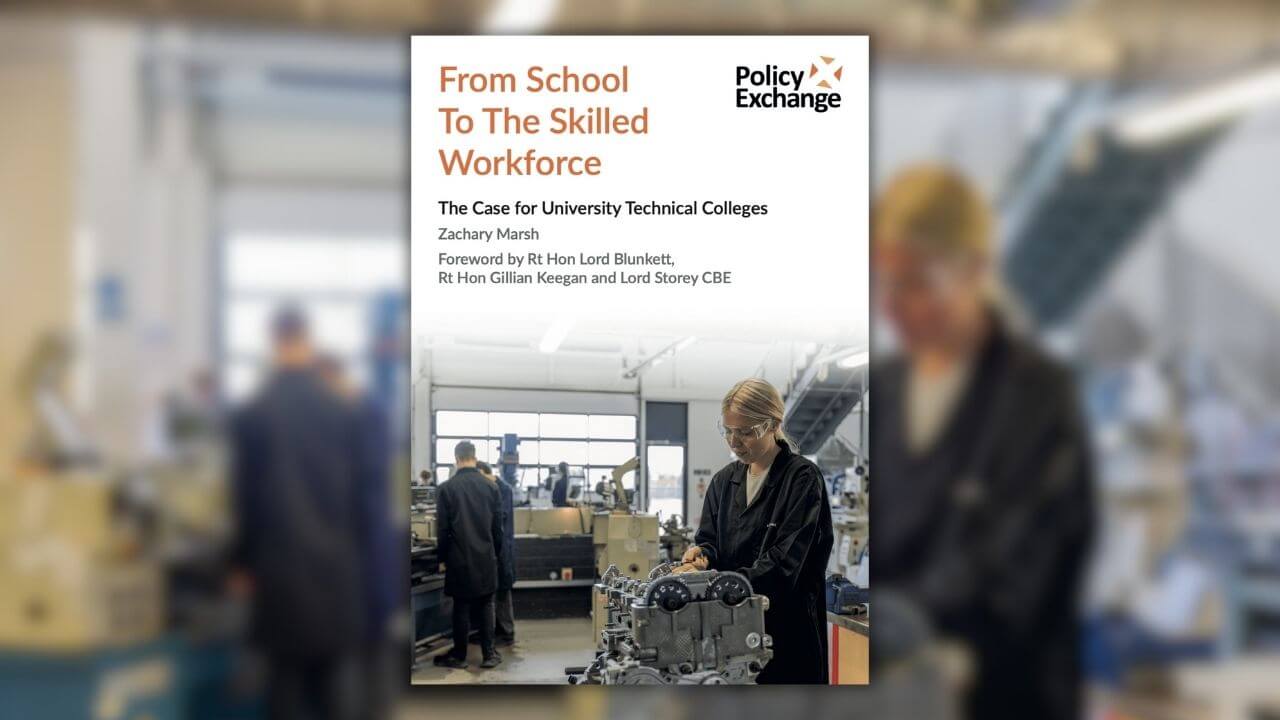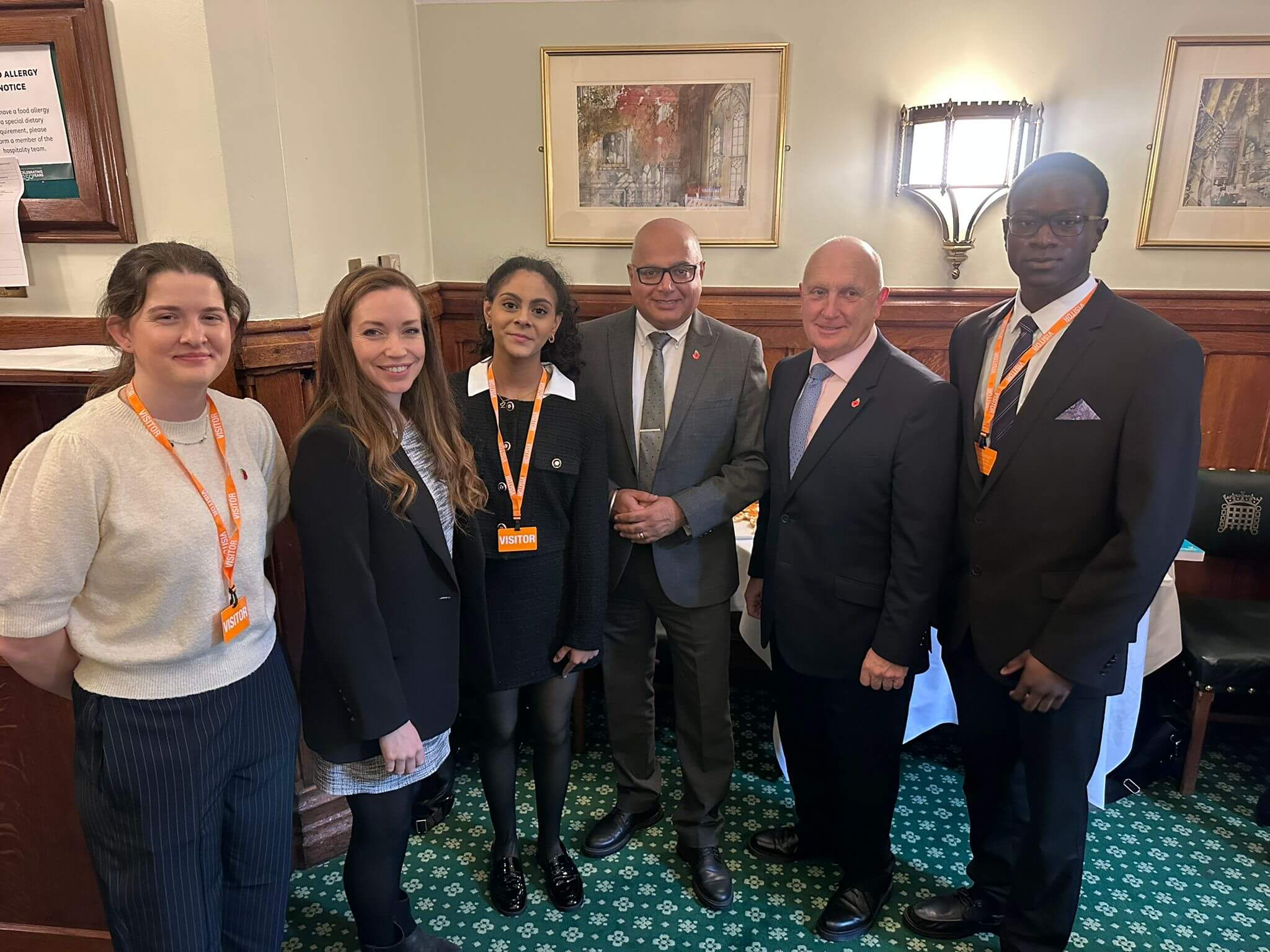Students at a network of technical education secondary schools are more likely to progress to apprenticeships and less likely to be out of work, an influential think tank’s latest report has revealed.
Policy Exchange has today published From School To The Skilled Workforce: The Case for University Technical Colleges. This landmark study of England’s 44 UTCs features exclusive research by Cambridge University statistician Prof Stephen Burgess, who has found year 13 UTC leavers are:
- Nearly fourteen percentage points more likely to be in an apprenticeship than the national average.
- More likely to stay on an apprenticeship, university course, or in work after leaving a UTC.
- Less likely to be NEET (not in education, employment, or training).
The traditional UTC starting age of 14 is “fundamental to their success,” the report argues, with the specialist curriculum and employer engagement opportunities during key stage 4 resulting in the above-average progression to apprenticeships and T Levels.
Baker Dearing’s role in the success of the UTC programme is also recognised, with the trust having helped drive up standards in the programme, secure additional funding for UTCs, and demonstrate flexibility in adjusting its own work and the UTC model to improve quality and effectiveness.
The report also highlights:
- The reputation that UTCs have developed for successfully reengaging students with education, with a particularly notable effect on white working class male students.
- UTCs are “well-placed” to tackle youth unemployment, which is nearing almost 700,000 in the UK.
- UTCs are meeting employers’ skills needs, owing to the programme’s strong record on student destinations, including degree apprenticeships, at Level 4 and above.
These findings should be welcomed by the government after its recent post-16 education and skills paper placed tremendous emphasis on supporting young people into work.
The report also highlights the severe demands of industry for skilled workers: Skills England estimates 900,000 more skilled workers will be needed in priority sectors by 2030. The Learning and Work Institute, meanwhile, has argued that skills gaps could cost the UK £120 billion a year by the end of the decade.
Report calls for ‘mini-UTCs’ and possibly expanding UTC programme
Policy Exchange has put forward a number of recommendations for ministers and Baker Dearing, including:
- The government should pilot 10 UTC Sleeves in priority growth areas at a cost of £25 million. UTC Sleeves are Baker Dearing’s initiative and involve developing a high-quality, employer-guided technical pathway – like a mini-UTC – within an existing school.
- An Employer Partnership Fund, where employers would put up 50 per cent funding for additional UTC Sleeves that the government would match.
- The government should consider whether to develop a UTC when it decides to build new secondary schools.
- A new Technical Educator Passport should be created, where senior industry figures could transfer professional qualifications into Qualified Teacher Status (QTS) in technical subjects.
- The Baker Dearing Educational Trust should facilitate mentoring by UTCs that are strong in English for UTCs that are weaker.
Chief Executive of the Baker Dearing Educational Trust Kate Ambrosi commented:
“UTCs have demonstrated their potential to support upward social mobility and to strike a spark of interest in education among young people.
“The high-quality, employer-guided technical education and tactile learning approach of UTCs have transformed the prospects of so many young people who would have otherwise slipped through the cracks.
“The Curriculum and Assessment Review highlighted in its recent report how students on key stage 4 technical awards have better attendance and lower exclusion rates.
“With technical awards and our UTC Sleeve initiative, the government has the means to use technical education to improve attendance and social mobility at pre-16.”
Chair of Baker Dearing Educational Trust and Chief Executive of Make UK Stephen Phipson commented:
“Employers’ need for a pipeline of skilled homegrown talent has never been greater. Skills shortages are now at epidemic proportions and, as the report states, businesses are increasingly frustrated by the education and training sector’s failure to consult with employers and adapt to industry’s evolving needs.
“There needs to be a sea-change in our approach to making young people ‘work-ready’ with the right skills and attitudes for work.
“The UTC model is our best chance of achieving the aims of the government’s Industrial Strategy so I would urge ministers to back Policy Exchange’s recommendations for a pilot of UTC Sleeves, greater support to recruit teachers from industry, and to consider expanding UTCs to more areas.”




